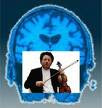What IS the Surgical Serenity Solution?
You’ve probably just found out that you, or a loved one, needs to have have surgery. No one WANTS to have surgery, but sometimes you just can’t get better without it. You may have heard that using music during surgery can improve the outcomes; make the overall results better. This is where the Surgical Serenity Solution comes in. The Surgical Serenity Solution is a method for having the ideal slow, steady, soothing, purely instrumental music playing for the patient through cordless, lightweight headphones. They were conceived of by a clinical musicologist, with years of experience helping surgical patients choose their ideal music.
Eight years later, hundreds of people have used our method and headphones for surgeries of all kinds, and with outstanding results. Dozens of studies are out there, documenting music’s power to reduce, anxiety, amount of anesthesia needed, and pain perception afterwards. Not only that, but when you have less anesthesia and less pain medication but also have less nausea and vomiting and you go home a lot sooner.
The Surgical Serenity Solution is gradually spreading around the country and the globe. Get this solution for yourself! You’ll be so glad you did. Check out the patient testimonials here: https://www.surgicalserenitysolutions.com/testimonials/.


